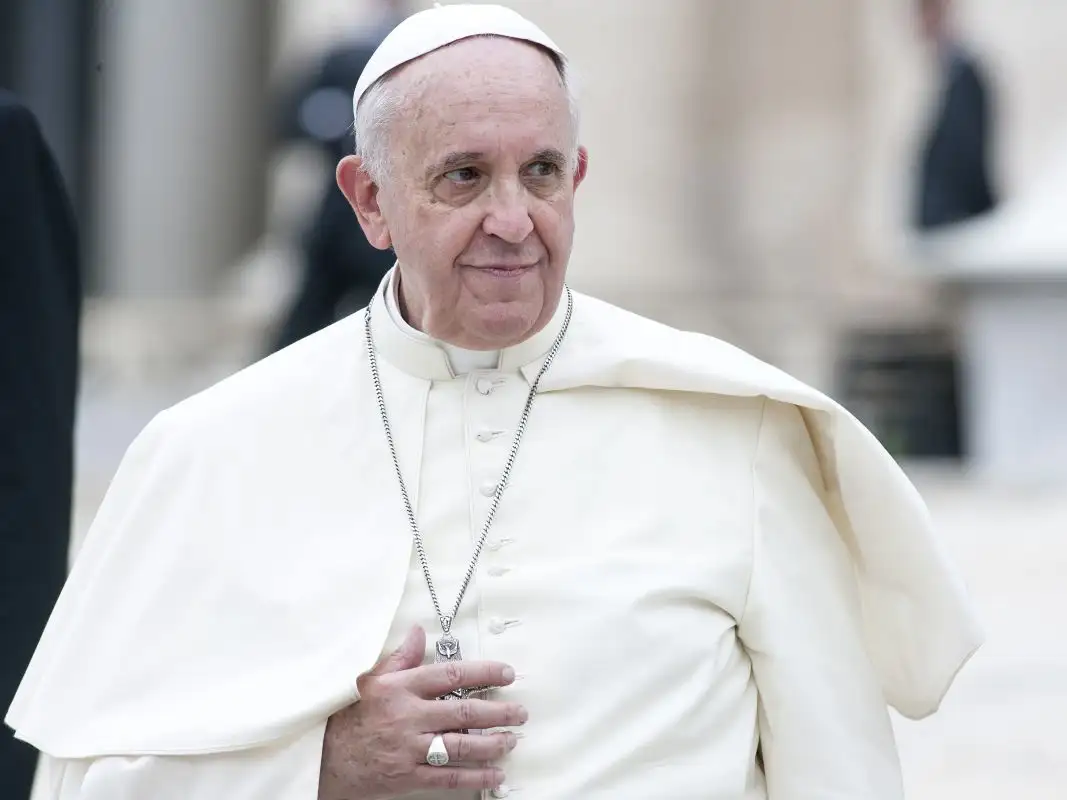
As we give thanks for Pope Francis’s time as Pope, we reflect on the fruits of his 12 years as pontiff.
When Cardinal Jorge Mario Bergolio greeted crowds at St Peter’s Basilica as Bishop of Rome, he joked that his fellow Cardinals had gone to the ends of the earth to find him, alluding to his Latin American roots as well as the lengthy conclave. Since then, the Holy Father has given extraordinary service to the Church and the world, while never losing his ability to stay close to people.
Whether it’s the witness he’s shown to the Gospel in his encounters with the most marginalised members of our global family, or his words of wisdom for young people and world leaders alike, Pope Francis has inspired countless people to work for a better world.
To mark his papacy, we have chosen 12 key moments that especially inspired us at CAFOD.
1. Evangelii Gaudium: Pope Francis’s mission statement for the Church
Pope Francis published numerous key letters and documents in his time as Pope.
The Holy Father set the tone for his papacy only a few months after his election in 2013 with a document called Evangelii Gaudium, or 'The Joy of the Gospel'.
The document was effectively a mission statement for “a Church which is bruised, hurting and dirty because it has been out on the streets”.
Francis made clear that the Church must be on the side of people living in poverty and demand action to tackle the causes of poverty. He called for an end to financial systems that prioritise profit over people, declaring that a new version of the ten commandments must be to say “thou shalt not” to “an economy of exclusion and inequality”.
Campaign for a more just world with CAFOD
2. First trip outside Rome: Lampedusa
Pope Francis preached as much with his feet as with his words. The papal visits and encounters he had often indicated his priorities as Pope.
In the summer of 2013, he chose to visit the island of Lampedusa for his first trip outside Rome – an island off the coast of Italy where thousands of people escaping poverty and persecution have arrived in Europe, with many losing their lives in dinghies and small boats in the Mediterranean Sea.
In his homily at Mass on the Island, he thanked the people of Lampedusa and Linosa, “the various associations, volunteers and security personnel who continue to attend to the needs of people journeying towards a better future”. He expressed affection to the Muslim immigrants keeping the fast of Ramadan at the time, and decried what he saw as the “globalisation of indifference” that led to a failure of responsibility in the face of the death of migrants crossing the mediterranean.
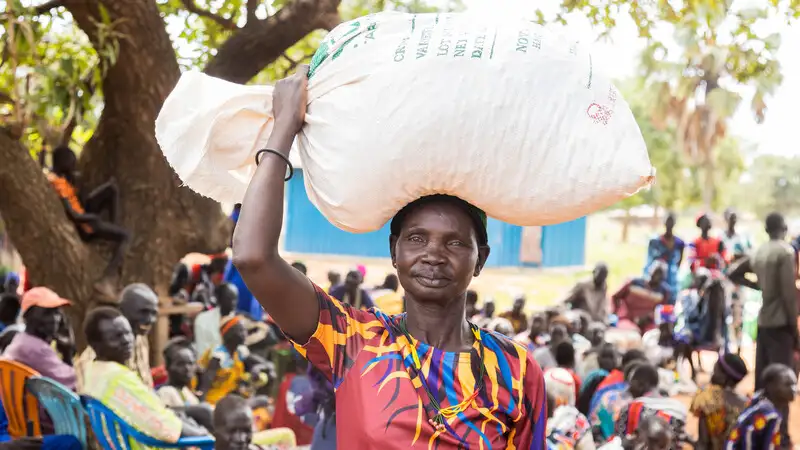
Refugee and Conflict Fund
Your donations towards our Refugee and Conflict Fund will help reach vulnerable people fleeing conflict and poverty all over the world.
3. The world meetings of popular movements
In October 2014, Pope Francis addressed the first of the World Meetings of Popular Movements, an assembly of grassroots groups and associations. Expressing his closeness to popular movements struggling for rights to land, labour and lodging, he said that the meeting was a great sign “for you have brought a reality that is often silenced into the presence of God, the Church and all peoples. The poor not only suffer injustice, they also struggle against it!”.
In the speech that followed, he spoke about the principles of Catholic Social Teaching and the new social injustices and throwaway culture that come from putting money at the centre of the economic system rather than the human being.
Pope Francis has since attended several of the World Meetings of Popular Movements to listen to farm and rural workers, indigenous groups, artisans and labourers, to give them his blessing in their struggle:
“I accompany you wholeheartedly on this journey. From our hearts let us say together: No family without housing, no farmworker without land, no worker without rights, no one without the dignity that work provides.”
4. Showing world leaders how to lead
In a distinctively humble way, Pope Francis has epitomised servant leadership – and shown other heads of state what leadership looks like.
That involves reminding politicians what their priorities should be, not least in 2015 when Pope Francis spoke at the United Nations General Assembly and the US Congress.
The Holy Father declared the Sustainable Development Goals to be “an important sign of hope” when he spoke at the UN – while reminding them that “solemn commitments” without action to turn them into a reality were not enough.
In Washington, Pope Francis succeeded in bringing a divided Congress together in applause for a message which urged lawmakers to work in a “spirit of cooperation” to put politics “at the service of the human person”, fighting against poverty, environmental damage and conflict.
5. Laudato Si’ and the Paris Agreement
Few people can say they’ve written a letter that’s been reported on news channels worldwide, debated in a US presidential election and cited by heads of government as a catalyst for an historic international agreement.
Yet that’s what Pope Francis achieved with his second encyclical.
Laudato Si’ is one of the most important documents written this century. The Pope’s letter, addressed to “every person living on this planet”, is a clarion call for us to care for the earth – our common home.
That means changing the ways we live our lives: tackling the climate crisis and ending the “throwaway culture”.
It also means making sure our sisters and brothers in the world’s most marginalised communities – those who are most affected by the damage caused to our common home, and yet who are least responsible for causing the climate crisis – are not treated as an “afterthought” by decision makers.
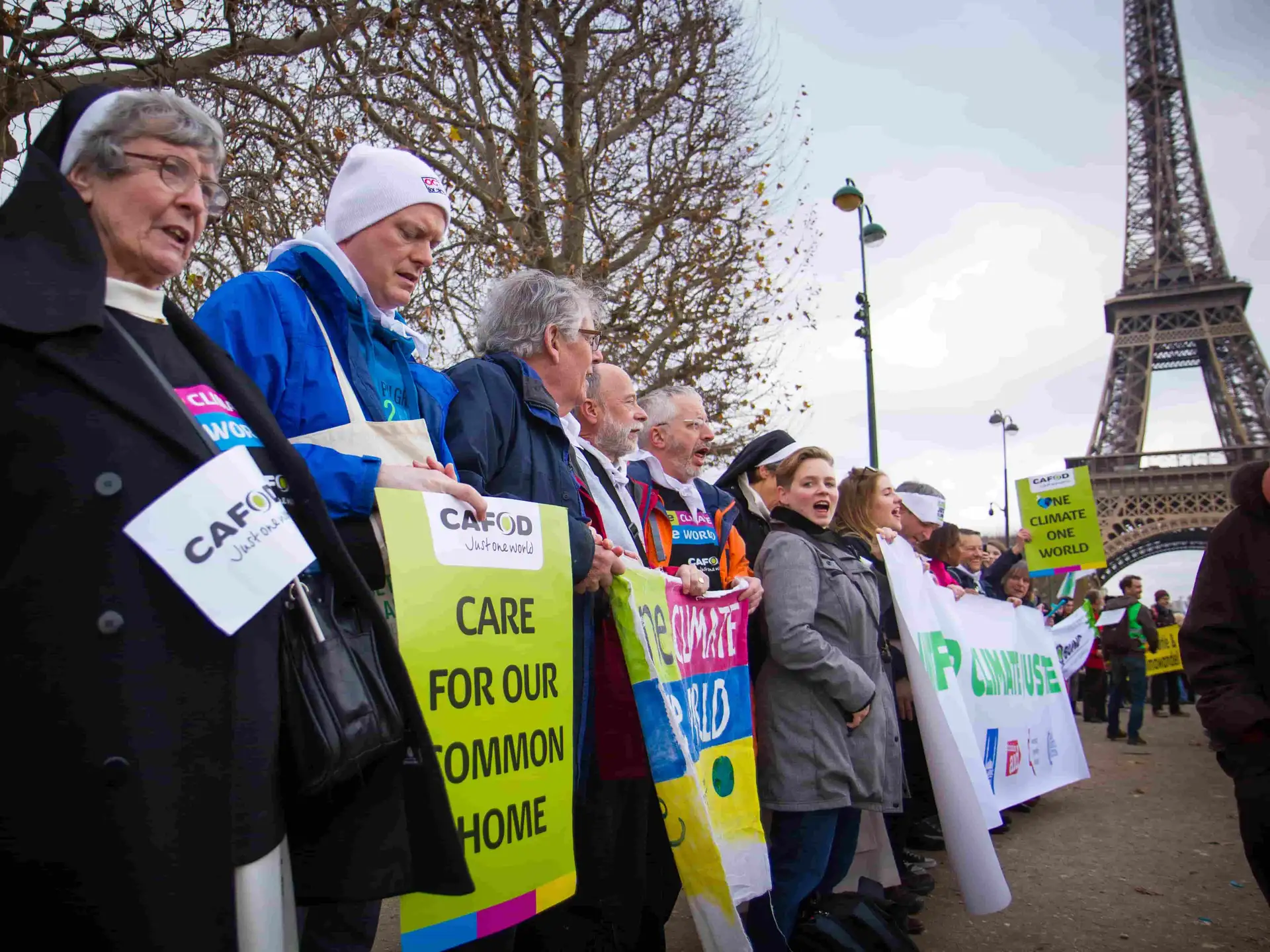

CAFOD supporters travelled to Paris for the 2015 climate talks, inspired by Laudato Si’
Pope Francis made no secret of the fact that he wanted decision makers involved in the important global summits that took place in 2015 to listen to his message. And he got his wish: numerous leaders and diplomats involved in the COP21 climate conference stated that Laudato Si’ was a key force in the success of the negotiations that led to the Paris Agreement.
But it’s not just on the geopolitical front that Laudato Si’ has caused shockwaves. Countless parishes, schools, dioceses, religious orders and health providers worldwide have committed themselves to take action in solidarity with our global family and to care for our common home.
6. 'Share the Journey' refugees and migrants campaign
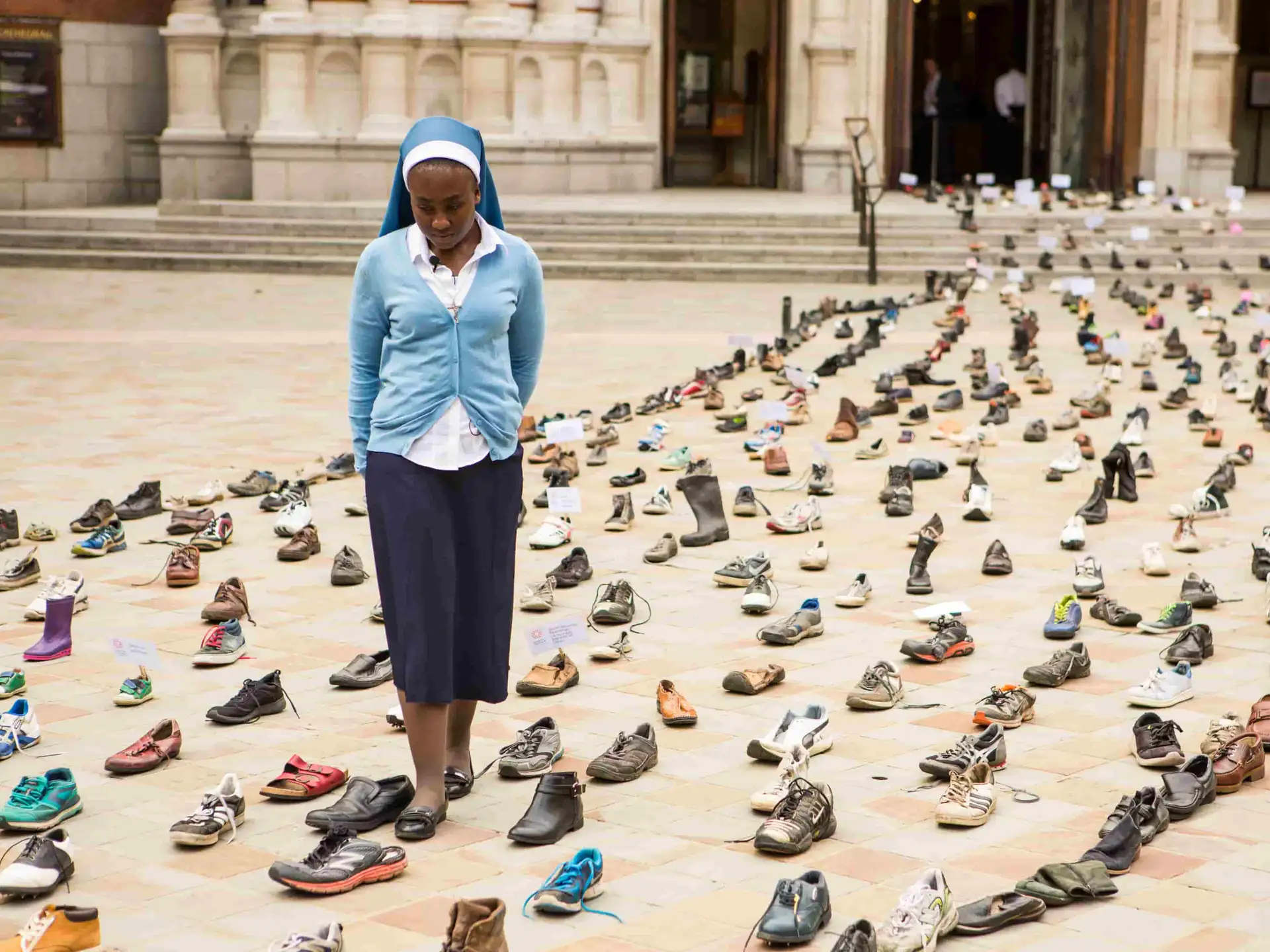

Sr Clara walking through a sea of shoes reflecting the journeys undertaken by refugees and migrants
Throughout his pontificate, Pope Francis has called for us to ‘welcome the stranger’ by ensuring that migrants and refugees are able to leave their homelands without risking their lives so they can live safely and with dignity.
In 2017, the Pope issued a call for governments to respond to the needs of refugees and migrants, reflecting on how Jesus himself had been a refugee.
Weeks later, Pope Francis launched the 'Share the Journey' campaign which Catholics in parishes and schools around England and Wales supported, walking tens of thousands of miles in solidarity with refugees and migrants.
7. Calling for peace in South Sudan
Hundreds of thousands of people have been killed in conflict in South Sudan since the world’s newest country gained independence from Sudan in 2011.
Pope Francis made one of his most memorable and profound gestures when he invited the leaders of the previously warring factions in the country to the Vatican in 2019 – kissing the feet of the two men as he issued a plea for peace.
The Pope repeated his call for an end to violence when he travelled in January 2023 to South Sudan on a ‘pilgrimage for peace’. More than ever, the people of South Sudan need our continued prayer and support.
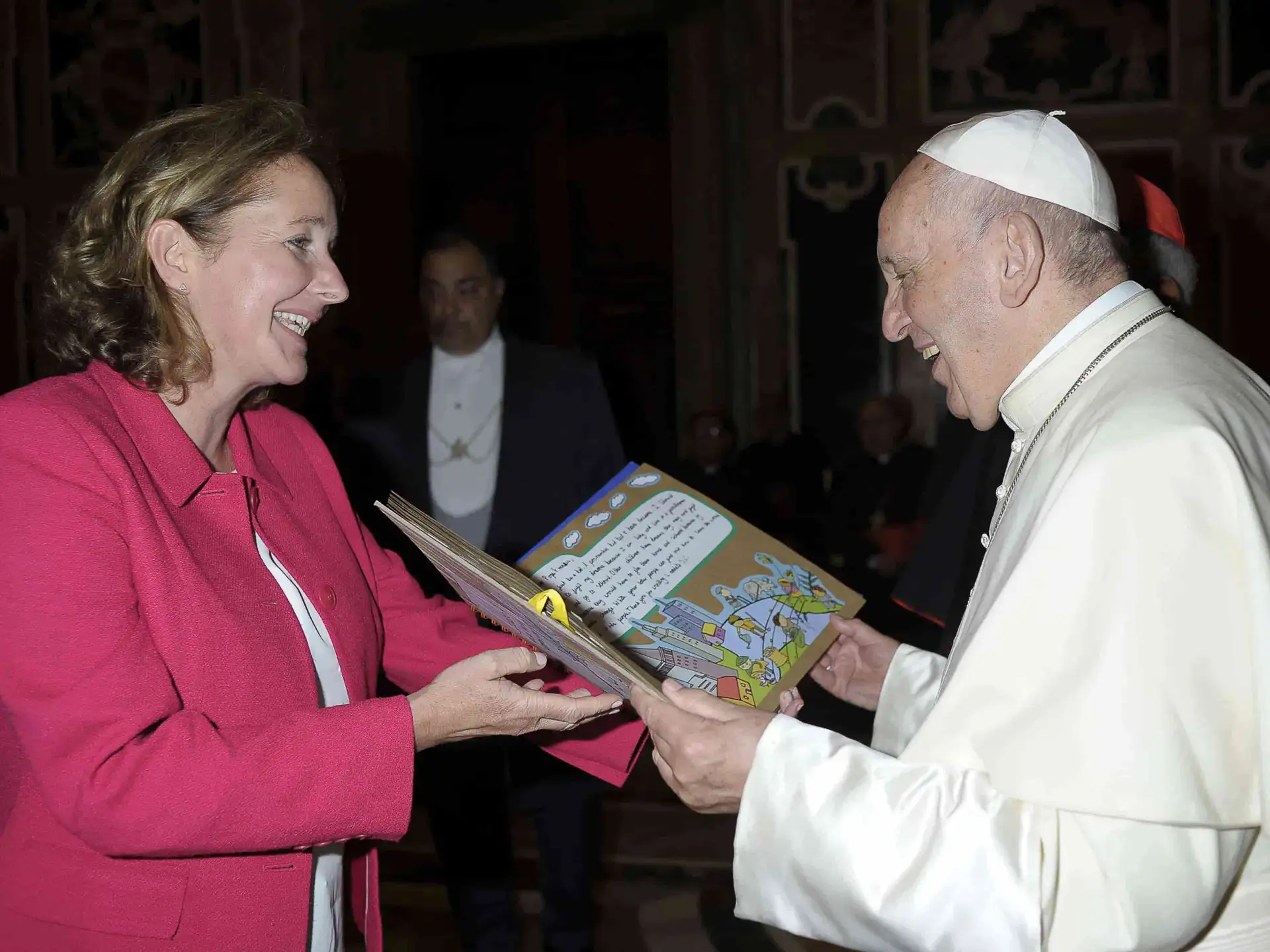

Pope Francis receiving messages from young Catholics in England and Wales inspired by Laudato Si’. Photo: Vatican Media.
8. Listening to the voices of young people
Pope Francis made clear in Laudato Si’ how important a role young people have to play in efforts to care for our common home and our global family.
But the Pope sought to highlight just how crucial young people are to the Church’s mission by inviting bishops to listen to the voices of young people in a special forum or ‘synod’ he convened in the Vatican.
The letter the Pope wrote to young people after the synod, Christus Vivit – or ‘Christ is Alive’ – reminded young people that everyone has a vocation, with Francis calling on them “to dream great things, to seek vast horizons… and to offer the best of themselves to the building of something better.”
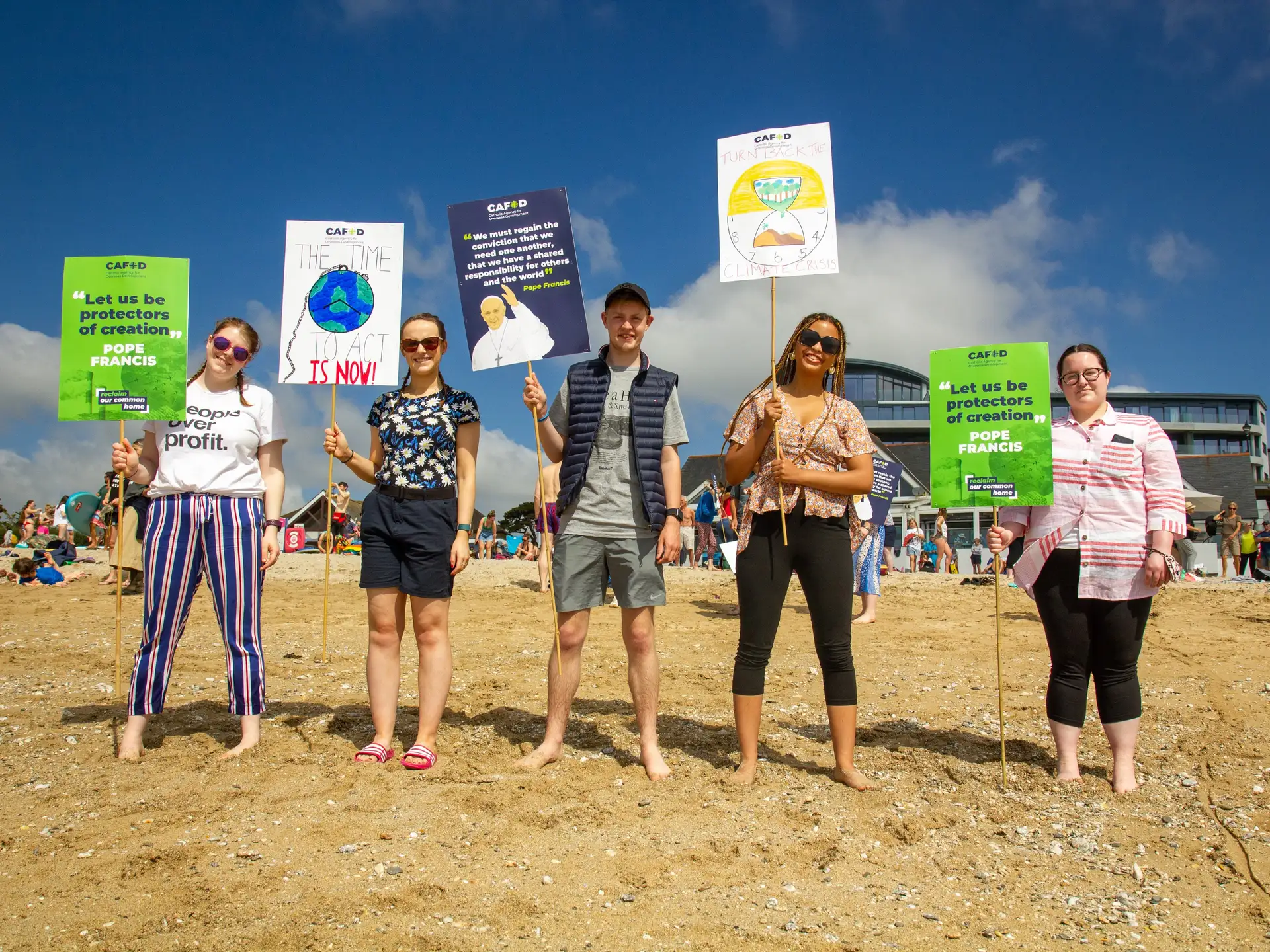

Young CAFOD supporters brought Pope Francis's message to G7 leaders in Cornwall in 2021
9. Listening to the voices of people in the Amazon
Pope Francis made listening a crucial theme of his papacy, and his call for the Church and the world to listen and learn from the people of the Amazon is a key example.
In a letter following a synod on the Amazon, Francis reminded the world of the need to care for the region by working alongside indigenous peoples and communities in the Amazon who possess “a wisdom that has been passed down for centuries from generation to generation”.
The Pope decried the impact of businesses that harm the peoples and the environment of the Amazon, denouncing this as “injustice and crime” and demanding that indigenous peoples be able to give or withhold consent to projects or propose alternatives.
10. Building a better world after the pandemic
One of the defining images of the pandemic is Pope Francis leading benediction in pouring rain in an empty St Peter’s Square.
With millions worldwide watching from home, the Pope led prayers, giving thanks for the essential workers and volunteers serving their communities during lockdown and urging us “to seize this time of trial” to reflect on the things that matter most.
The Holy Father issued this call again later in the year, using his encyclical Fratelli Tutti to urge us in our rush to return to normality to instead build a “better normal” – one where we work together to address the “hidden pandemics” of hunger, inequality and the climate crisis, recognising that what affects people in one part of the world affects us all.
11. “War is always a defeat for humanity”
Pope Francis repeatedly decried what he called the “third world war fought piecemeal” that continues to scar our world.
Even when in hospital, Pope Francis would reach out with daily phone calls to Father Gabriele Romanelli, parish priest of the Holy Family Parish in Gaza. He was as much informed by these pastoral connections as by the Gospels and Catholic teaching in his efforts to build bridges and heal wounds amidst conflict.
In his 2024 encyclical letter on the Sacred Heart of Jesus, Dilexit Nos, the Holy Father expressed in simple terms whose voices should capture our attention in the midst of war, beneath the noise of news media:
“We need only to see and listen to the elderly women – from both sides – who are at the mercy of these devastating conflicts. It is heart-breaking to see them mourning for their murdered grandchildren, or longing to die themselves after losing the homes where they spent their entire lives. Those women, who were often pillars of strength and resilience amid life’s difficulties and hardships, now, at the end of their days, are experiencing, in place of a well-earned rest, only anguish, fear and outrage.” (Dilexit Nos, 22)
Find out more about Dilexit Nos
12. The Jubilee year: Pilgrims of Hope
In a poignant moment on Christmas Eve 2024, Pope Francis passed through the Holy Door of St Peter’s Basilica in a wheelchair, leading us into the Jubilee Year, Pilgrims of Hope.
Calling the Church to be renewed in hope, he emphasised not vague optimism, but courageous trust in Christ’s love “poured into our hearts through the Holy Spirit” (Spes non Confundit, 2) and concrete commitments. In his message for the World Day of Peace, on 1 January 2025, he made three proposals:
To cancel the international debts that threaten the future of many nations and, “lest this merely reboots the vicious cycle of financing and indebtedness”, devise a new financial framework.
To help foster a culture of life by eliminating the death penalty in all nations.
To use money earmarked for armaments to establish a global fund for eradicating hunger and combatting climate change.
He reminded us of the meaning of Jubilee, proclaimed since Biblical times: “that no one comes into this world doomed to oppression: all of us are brothers and sisters, sons and daughters of the same Father, born to live in freedom, in accordance with the Lord’s will.”
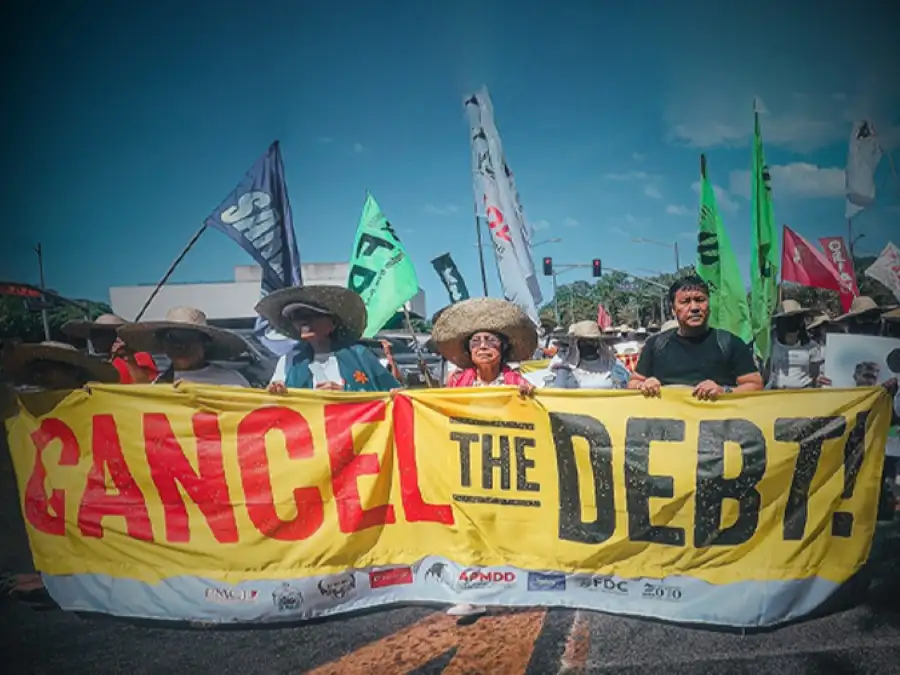
Call for debt justice in the Jubilee Year
The world is currently facing the most acute debt crisis in history: 54 countries – from Kenya to Sri Lanka – are facing debt distress.
It’s the world’s poorest countries who are the worst affected, with many forced to spend more on payments to big banks, wealthy nations and global institutions than they spend on health, education or tackling the climate crisis.
And the time to act is now!

